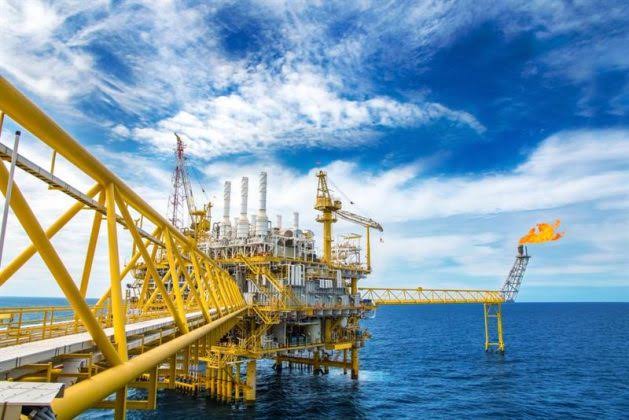Some stakeholders in the Niger Delta region are of the strong opinion that the multinational oil companies (IOCs) operating in the region, were divesting their onshore assets and liabilities due to the 2021 ruling of the Dutch Court in the Hague.
The Court had delivered a major victory to four Nigerian farmers in their 13-year-long effort to hold Shell’s Nigerian subsidiary accountable for oil spills on their lands.
The Court of Appeal in The Hague sided with farmers and environmentalists on most of their legal claims, ruling that the Nigerian subsidiary owed the farmers financial compensation for the oil spill pollution in two villages.
LEADERSHIP investigation revealed that there are fears that Dutch Appeal Court judgement could further open doors for more litigations against the oil companies, especially in their home countries.
The IOCs had claimed that their reasons for divesting and heading offshore, was due to incessant sabotage of their facilities in the region, leading to loss of revenue to them and the Nigerian government.
But, speaking with LEADERSHIP in Goi Community of Gokana local government area of Rivers State, son of one of the farmers that took Shell to Dutch Court in 2008, Chief Eric Bariza Dooh, said apart from the compensations, the IOCs would not be able to meet up what the cour said that they should install detection system in all their oil facilities.
Dooh is also by inheritance, the traditional ruler of Goi, a community that has remained a ‘ghost town’ for about 16 years due to devasting effect of oil spills in the community.
He said: “For me, the reason why I feel they are divesting offshore is because they could not meet up with what the Dutch Court gave in its ruling in February 2021, which said they should install detection system in all their oil facilities such as the gas pipeline and the oil pipeline. They have not been able to meet up with that condition.
“Secondly, the stretch of the Trans Niger Pipeline (TNP) that is conveying oil to the export terminal, Bonny, has been corroded because they were laid in the 50s. To be precise, in 1958. Up till now, they have not changed the stretch of that pipeline. What they normally do is random sectional replacement of the pipes where they were heavily corroded.
“Due to these reasons, they decided to dodge from corporate social responsibilities. They don’t want to be held liable for any pollution. They want to go to where the government and host communities will not know what they are drilling and what they are sending for export. I am telling you; things that are happening in the Niger Delta now, only God knows.
“For example in the Bodo West-Bomu oil field, several spills occurred due to equipment failure. Shell has not been able to settle the differences. Shell has not been able to say, ‘sorry, we are liable for all these oil spills; let us discuss it this way or that way.’
“What they are doing is to dodge, create division amongst the people, create confusion in the midst of the host communities and now problems are erupting in the oil fields, especially in Bodo West field. Their chiefs have deserted the community as a result of the continuous spills in the Trans Niger Pipeline.
“That is why they are divesting to the offshore so that if there is pollution, nobody will know that there is pollution; if they are pumping, nobody will know the amount of oil they are pumping, if they are drilling, the government cannot even attest to the amount of oil they are drilling. That is just the reason.”
Speaking with LEADERSHIP also, an environmentalist, Fyneface Dumnamene Fyneface, said the multiplicity of litigations against the IOCs was the main reason why they were divesting their onshore assets and liabilities.
Fyneface, who is also the Executive Director of Youth and Environment Advocacy Centre (YEAC-Nigeria), said the conditions given to the IOCs by the Courts were beyond what they can handle.
He said: “The actual reason why they are divesting in the Niger Delta is because of the multiplicity of court cases against them over crude oil spills. It is beyond their imagination; it is beyond what they can handle.
“In fact, the remote cause of troubles of communities about oil spills’ compensation and clean up which they were managing. But, as long as the London Court gave a judgement that communities can now approach their home countries, to demand for justice when o spills occur.
“That became a big blow to them; that if they continue in the communities and all of them run to where they can get justice, that they will not be able to manage it. So, the best thing for them to do is to pull out. That is why you see then moving in droves. Shell is divesting everywhere and moving away.”
The environmentalist stated that although there will oil spills and pollution offshore, communities will have limited claims over the area where the spills occurred.
Fyneface said: “There will be spills and pollution offshore but at that point, when we look at issues of continental shelves, we look at issues of exclusive economic zones, we look the ocean and where they are going to, to an extent, communities will have limited claims over areas where spills occur.
“It is going to be something that will be between the state government, federal government and the oil companies. The federal government is world hand in hand with them because if they stop exploration, Nigeria will not have money again.
“No matter what happens at that level, the claims of communities will be minimal if not completely zero. Some states that have nautical miles into the river can lay some claims but are they ready to look at these things? It is only communities then can hold these people accountable.”





